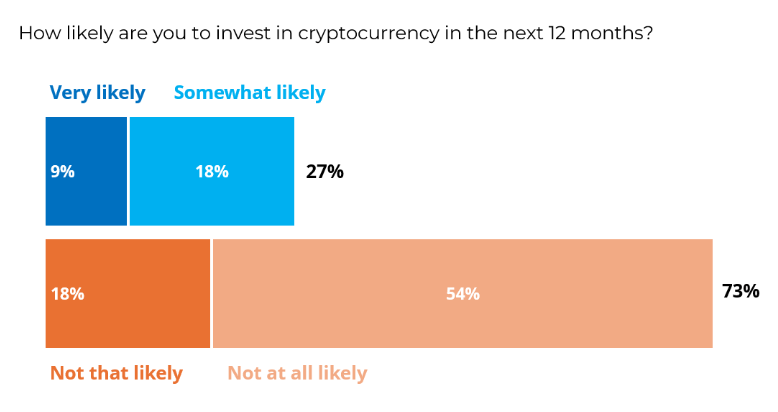In a politically charged environment, the intersection between technology, investment, and political affiliation has never been more scrutinized. One such area under the magnifying glass is the cryptocurrency industry, renowned for its rapid growth and potential to transform the financial landscape. As the November elections draw near, the Democratic Party, under the leadership of Vice President Kamala Harris, finds itself at a crucial juncture, needing to bridge a gap with a demographic it cannot afford to overlook: the crypto community.
A recent survey spearheaded by the crypto investment firm Paradigm has shed light on this very issue. The study collected responses from 804 registered Democrats, unveiling a layer of uncertainty that could affect the party’s performance in the upcoming elections. The data presents a compelling narrative: 13% of the participants surveyed were undecided about casting their vote for Harris, a figure comprised significantly of crypto investors. Within this subset, 18% have put their money into cryptocurrencies, and among these, a critical 21% perceive the Biden administration as having adopted an overly aggressive stance towards the crypto industry.
This sentiment of hostility perceived by crypto investors has implications that extend beyond mere dissatisfaction. The Paradigm survey hints at a possible political reshuffling, with 1% to 2% of Democrat voters, swayed by their stance on cryptocurrency, contemplating a shift towards supporting the Republican contender, Donald Trump. The timing of the survey, conducted between July 25 and August 1, right after Biden’s announcement of his withdrawal from the Democratic nomination, adds a layer of urgency and relevance to these findings, despite the 3.5% margin of error.
Despite the challenges, the survey also uncovers a silver lining: a growing enthusiasm for crypto among Democrats. Currently, 18% of Democratic voters have ventured into crypto investments, a number anticipated to climb in the year ahead. The potential for increased investment is notable, with 9% expressing a high likelihood and 18% a moderate likelihood of exploring crypto investments in the near future. However, a significant 54% remain apprehensive, indicating no interest in delving into this emerging market.
In a striking analysis of demographic data, the survey found that support for crypto varied notably across ethnic lines within the Democratic base. While 18% of all Democratic voters owned cryptocurrency, the numbers rose among non-white demographics: 22% among Black Democrats, 25% among Hispanic Democrats, and a remarkable 27% among Asian American and Pacific Islander Democrats. This data not only underscores the diverse appeal of cryptocurrency but also highlights the potential for increased political leverage among these demographic groups.

The issue of cryptocurrency is not trivial in the context of political decisions, as reflected in the survey’s findings on investment size. Among the 5% of Democrats with crypto investments exceeding $10,000, a significant 33% consider it a critical voting issue. This sentiment is echoed, albeit to a lesser extent, among all crypto owners, with 23% acknowledging its importance in their electoral decisions.
Justin Slaughter, Paradigm’s policy director, emphasizes the Democratic Party’s need to embrace technological innovation, including cryptocurrency, to maintain its competitiveness and allure. He warns against the danger of echo chambers, highlighting the risk of underestimating the popularity and potential of crypto investments among the electorate.
Support for crypto, as the survey suggests, is higher among non-white Democrats, highlighting an interesting intersection of technology, investment, and diversity within the Democratic base. Furthermore, the survey reveals that cryptocurrency ownership is not limited to substantial investments; only 8% of respondents have more than $1,000 in crypto, suggesting that the community spans a wide range of economic backgrounds.
Slaughter’s comments on the significance of crypto holdings in election decisions underscore the potential impact of this issue on voter behavior. The sentiment among those heavily invested in crypto—seeing it as a factor in their voting decisions—signals a unique challenge and opportunity for the Democratic Party.
For those looking to delve deeper into the intricacies of decentralized finance and the latest developments in the crypto sphere, [DeFi Daily News](http://defi-daily.com) offers a treasure trove of information and insights, keeping readers at the forefront of innovation and industry trends.
In conclusion, the intersection of politics and cryptocurrency presents a multifaceted challenge for the Democratic Party as it navigates the changing landscape of voter interests and priorities. The Paradigm survey underscores the importance of understanding and engaging with the crypto community, pointing toward a need for balanced policies that foster innovation while addressing concerns of market stability and security. As the November elections edge closer, the Democratic Party’s ability to resonate with crypto investors may very well shape its fortunes, making the crypto sphere a battleground of not just economic, but also political significance. The road ahead is fraught with challenges, but also brimming with opportunities for those willing to embrace the complex tapestry of technology, investment, and politics.
Source link



















